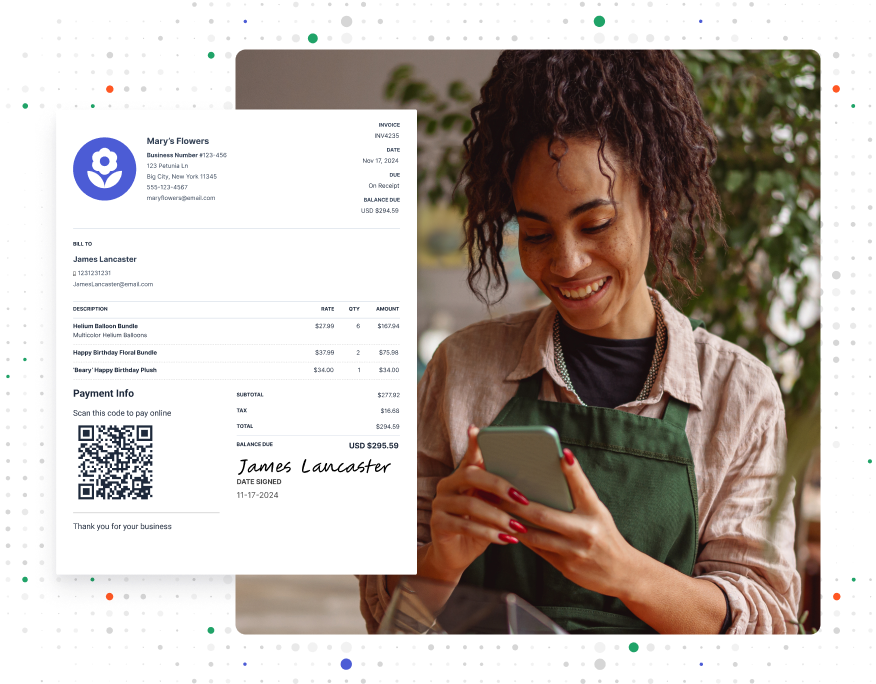A CRM Guide: 10 Customer Relationship Management Strategies

Being a business owner means juggling a lot of tasks at once.
But if juggling clients starts to feel like you’re just dropping ball after ball, it might be time to consider a CRM (customer relationship management) strategy. A good CRM system can help you streamline how you manage and organize both customer information and interactions.
Using CRM software isn’t just about keeping good relationships with your current customers—it’s about attracting new ones. With this guide, you’ll gain all the essential tools and knowledge you need to succeed in a competitive business environment.
RELATED ARTICLE — What Is CRM and How to Find the Best Option for a Small Business
What Is Customer Relationship Management?
Customer relationship management, or CRM, is the plan that improves how you interact with your customers. It’s essential for any company. But it’s especially important if you’re a small business that faces a lot of competition and needs to build deeper relationships with clients.
Some of the benefits of CRM software for small business are:
- Customer Satisfaction. CRM systems help keep your existing customers happy. They store detailed information about customers’ past purchases, preferences, and interactions. You can manage all interactions in one place so nothing gets overlooked. Plus, you can personalize offers and record key details about clients to help them feel valued.
- Predict Needs. CRM tools look at data trends to predict customer needs, such as when they might need a product refill or a service check.
- Getting New Customers. CRM systems help get new customer leads. They collect data from website visits and social media interactions so you can track and engage potential customers.
RELATED ARTICLE — What Is Customer Relations? Everything You Need To Know for Your Business
5 Business Pillars that Benefit from CRM
CRM systems help manage different parts of customer relationships. They focus on areas that need special attention. Here are five types of business operations that would benefit from CRM systems:
- Sales. A sales team can use the CRM to generate and close on leads. It helps track potential new customers and manage the sales process from the first contact to closing deals. It’s ideal for tracking your leads and ensuring no opportunities are missed.
- Service. A good CRM integrates customer service with sales and marketing efforts. It helps customers contact you and receive consistent service. For example, if you’re a web designer, interested clients and former clients who are having security issues can both reach out for assistance.
- Cross-functional Teams. The aim here is to share customer data across different parts of your business. Improve communication between team members, like a salesperson and the head of service, to collaborate more effectively.
- Marketing. A CRM helps you run and automate your marketing, like email campaigns or online ads. It lets you target specific customer groups and check how well your campaigns are doing with tools like A/B testing to see what’s most effective.
- Small Businesses. Some CRM software is targeted specifically at small businesses. These platforms are much simpler to use and less expensive than those designed for larger companies. But they still offer powerful tools to provide your customers with quality service. And if your small business is just you or you and a few employees, you’ll all benefit from software that is easy to use.
RELATED ARTICLE — Communication Methods Within a Business and How To Improve Your Skills
3 CRM Software Options for a Small Business

The right CRM software helps you manage and track customer information to grow your business. Here are three common types of CRM technologies that are friendly and easy to use for small businesses:
- Cloud-based Systems. These CRM systems are hosted online. You can access them from anywhere with an Internet connection. They’re great for small businesses because they are affordable and don’t need advanced hardware. Plus, you can scale them as your business grows.
- Open Source Platforms. These are customizable CRM systems where the source code is available for free. You can change it to suit your specific business needs. While it requires more technical skill, it’s a flexible option that can be tailored exactly to your business processes.
- On-Site CRM. This software is purchased by a business and hosted on its own servers. It’s unlike cloud-based CRM, where the software is hosted on the vendor’s servers and accessed over the Internet. Instead, the business is responsible for managing the software. That includes any updates or upgrades. On-site CRM is best for businesses that handle sensitive data, such as financial services, legal firms, or companies that work in healthcare.
FROM ONE OF OUR PARTNERS — Does Your Small Business Need a CRM System? (Plus Our Top Picks!)
Customer Relationship Management Examples
CRM software handles everything from customer questions to engaging customers on social media. Here’s how some CRM systems are used to improve customer interactions and make business processes smoother:
- Contact Center. This CRM example focuses on interaction through service calls and support. It helps businesses collect and update customer information so sales and marketing teams have correct data.
- Social Media CRM. Businesses can chat with customers using social platforms like Facebook, Twitter, and LinkedIn. Tools in social CRM track mentions, analyze feelings, and answer customer questions online. This helps brands maintain a positive, helpful image and collect valuable feedback.
- Mobile CRM. These apps let you access customer data on smartphones and tablets, making it easy to work from anywhere. They use features like GPS and voice recognition to work better and improve user experience.
- Business-to-business CRM. Business-to-business (B2B) CRM systems are designed to manage long sales processes and complex relationships that come from B2B dealings. B2B deals are often larger in scale and cost. These systems track sales progress through the sales funnel to provide a clear view of interactions. They keep every sale on track.
10 Strategies for Small Business Customer Relationship Management

Effective CRM can transform how small businesses interact with clients and manage operations. Here are 10 essential CRM strategies to enhance customer relationships and drive growth:
1. Define Goals
Know what you want to achieve. Set goals that can be measured so you can see if you’re making progress toward your targets. For example, don’t just say you want to increase sales. Instead, say you want to increase sales by 10% in the next quarter. Clear goals will guide the way you use a CRM platform.
To do this, you can use the SMART framework. This stands for Specific, Measurable, Attainable, Relevant, and Time-bound. Give yourself a clear deadline, way to track success, and reasonable expectations.
2. Perform a Business Audit
Review your current business processes to identify what’s working and what isn’t. Having this information helps you understand which areas you should target to benefit most from CRM technologies.
3. Understand Customer Journey and Behaviour
Track how customers interact with your business from start to finish. This knowledge allows you to improve their experiences at every step, improving customer retention.
RELATED ARTICLE — 15 Innovative Ways to Improve Employee Engagement
4. Create a Consistent Sales Process
Make sure your sales process is the same every time. Consistency improves efficiency and the customer experience.
5. Use Data Insights to Fuel Employee Productivity
Use the information gathered from your CRM to find ways to make your employees more productive and help make decisions. Watching KPIs (key performance indicators) through CRM dashboards can reveal important insights.
6. Keep the Data Clean
Clean and update your CRM data often to ensure it’s always accurate. Remove customers who have stopped using your services or products. And check for duplicate records, update outdated information, and correct any errors. By doing this, you improve your ability to help customers and make informed decisions about operations.
7. Use Automation and AI
Use automation and AI to handle routine tasks like data entry and answering basic customer questions. This way, you can free up your sales team for more complex tasks or problems.
8. Provide Personalized Interactions
Tailor your interactions with customers based on the information in your CRM. Personalized communication dramatically improves customer satisfaction and loyalty.
9. Refine Marketing Strategies With CRM Data
Use insights from your CRM data to adjust your marketing strategies to better suit the needs of your target audience.
10. Track Performance
Regularly check and assess how well your CRM strategies are working. Make changes as needed to achieve better results.
RELATED ARTICLE — How To Write a Business Proposal for a Small Business
3 Pro Tips to Master CRM for a Small Business
Mastering CRM for small businesses can improve how you interact with customers and manage your business. Here are three tips to help you get the most out of your CRM system:
- Standardize Formatting. Keep all your CRM data in the same format. That might mean you always ask for the same information, like their name, contact information, and services. Then, organize them all by name first, then date of service, and whatever else makes sense for your business. Doing this makes reading and analyzing the information easier, leading to quicker and more accurate decisions.
- Use Gamification. Make CRM usage fun for your team by adding game elements, like rewards for updating data or achieving sales goals. Games can boost your sales team’s (or salesperson’s) motivation and increase CRM engagement.
- Ask Customers to Provide Feedback. Invite customers to give feedback on your products or services through your CRM system. This will provide valuable insights and help you improve offerings.
FROM ONE OF OUR PARTNERS — What to Consider when Choosing a CRM
Stay On Brand, Look Professional
Invoice Simple helps you look professional in all your dealings with customers. Personalize your invoices and estimates to match your business style. Add your logo and choose your design, all without any distracting watermarks. Start with one of our simple, modern templates and make it your own.
Streamline your customer interactions and boost efficiency with Invoice Simple.
Start Your First
Invoice Today
Create customized and professional
invoices and connect with clients
